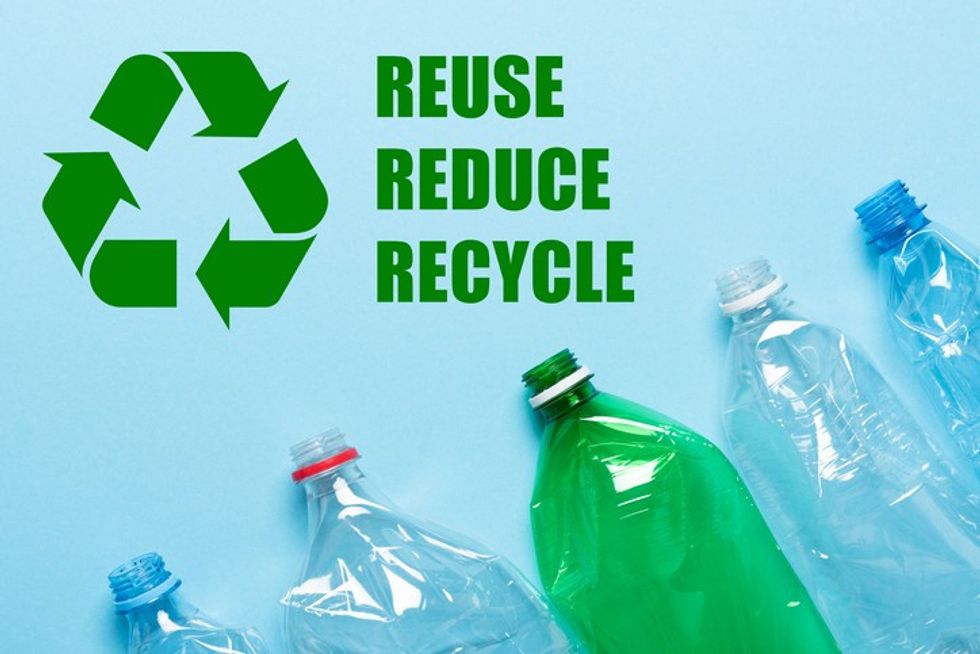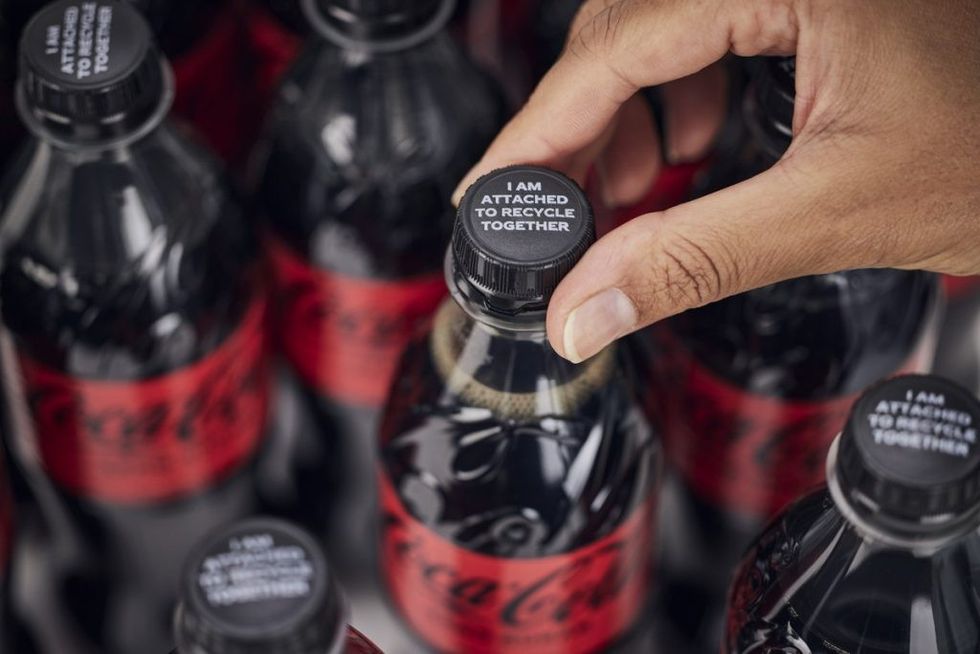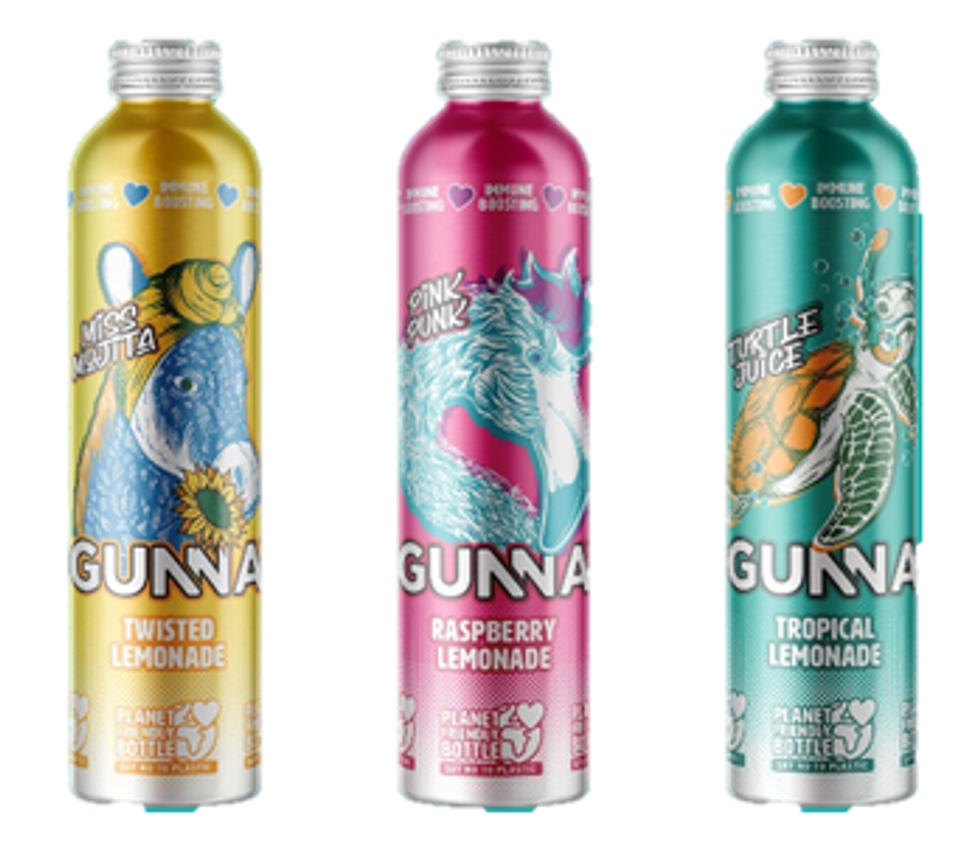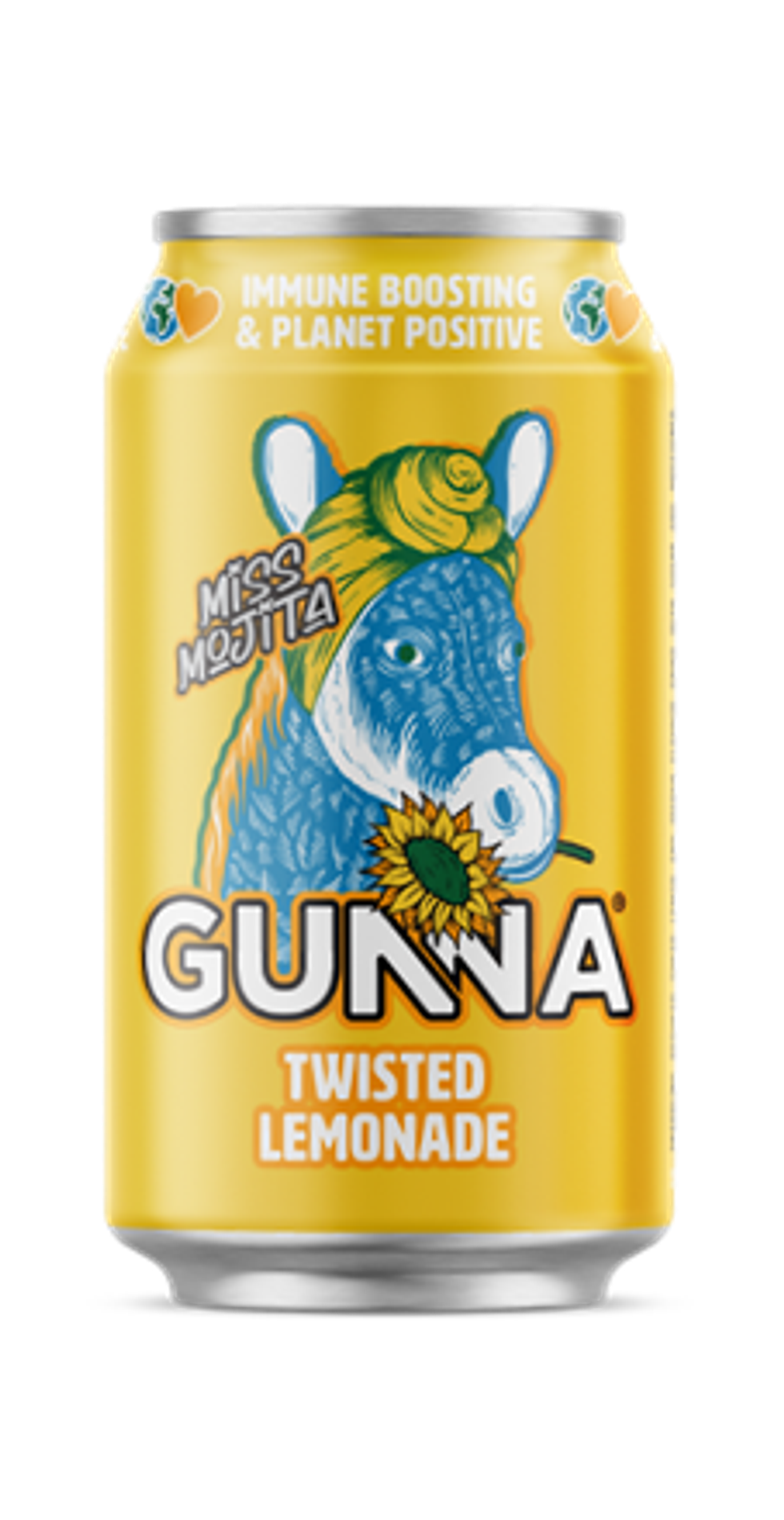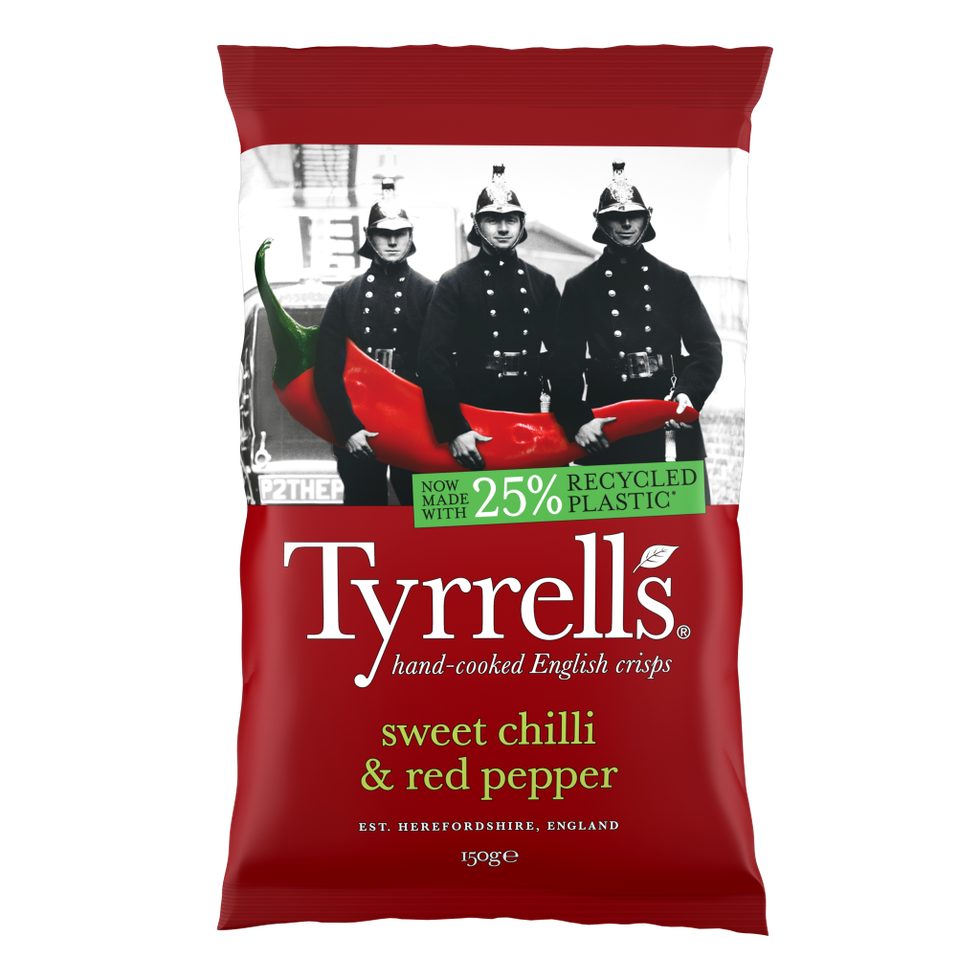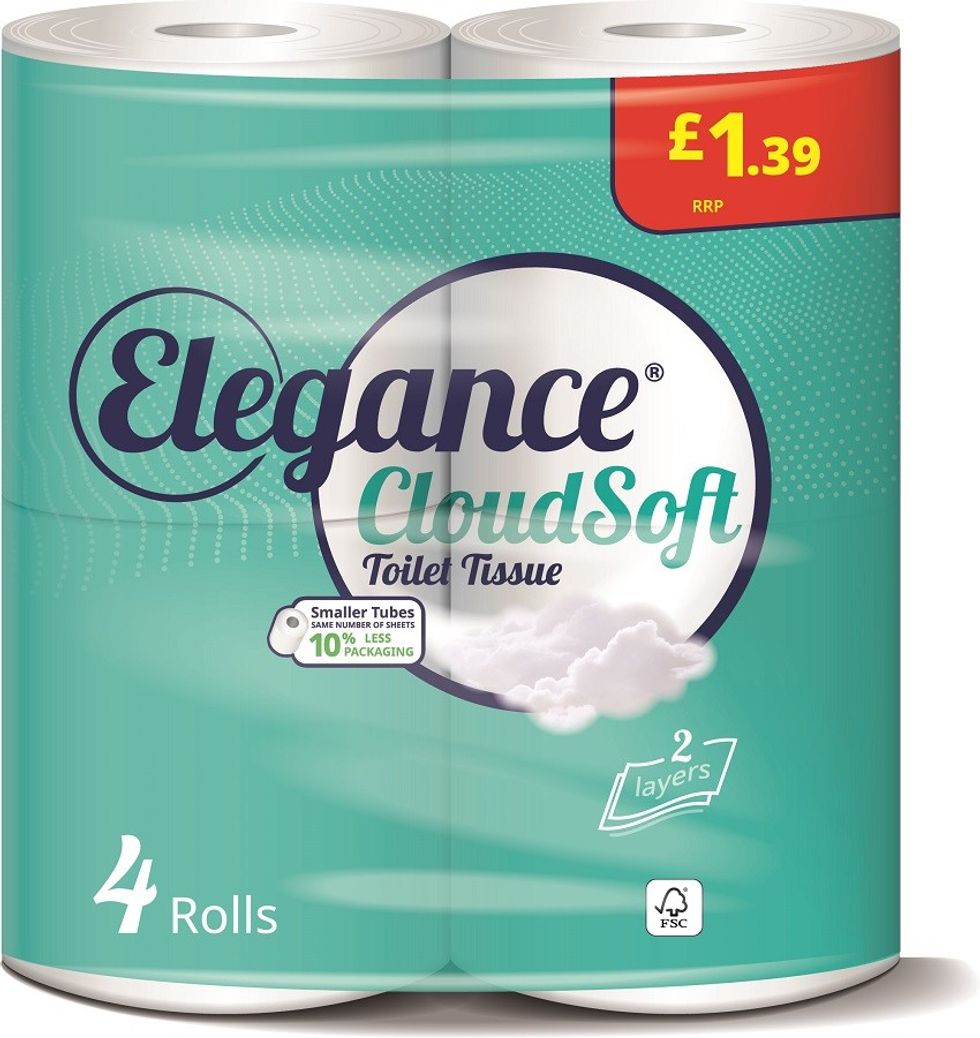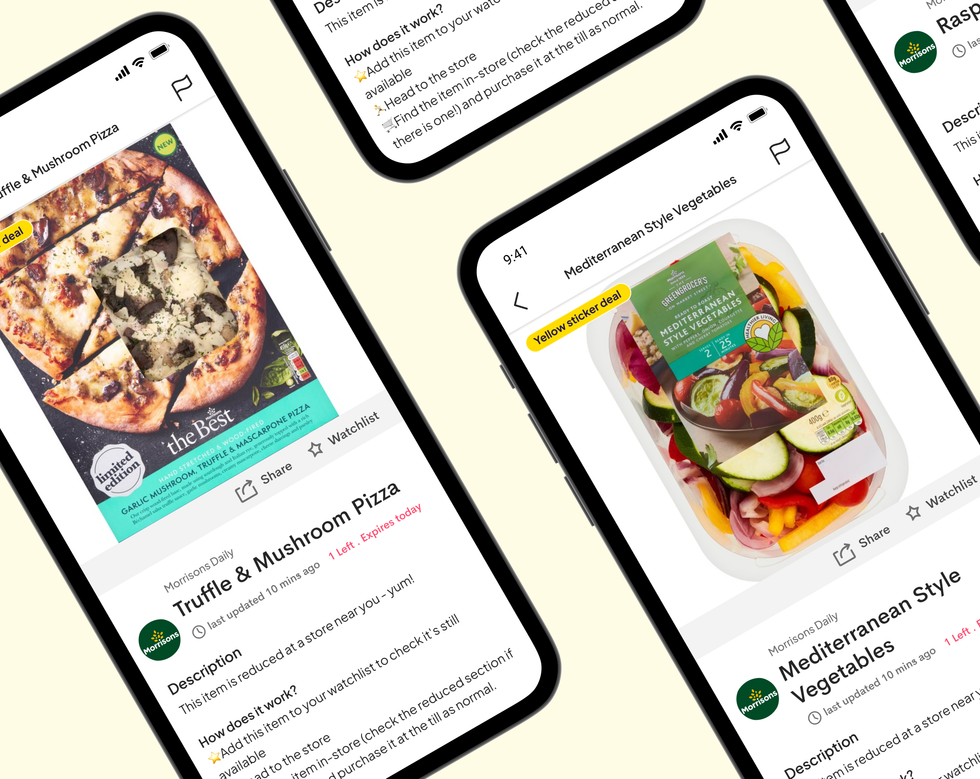Stocking sustainable products is not merely a trend; it’s a smart way to stay ahead of the curve to tap the rapidly changing consumer habits.
Today’s shoppers are hyper-aware of their environmental impact, and they're actively seeking out products that align with their values. With this in mind, offering sustainable products is not only the right choice for the planet but also a clear message to customers that your business is committed to environmental responsibility. From a business perspective, it simply makes sense.
But how tuned in are Brits when it comes to sustainability in their daily shopping?
According to a recent report on consumer buying habits by Deloitte, frequently-purchased and essential items, such as groceries and everyday household products, drive consumer interest in sustainable and ethical values “the most”.
The report also noted that a third of consumers (34 per cent) would trust brands more if they were certified as ethical or sustainable by an independent third party. A similar proportion (32 per cent) claimed that their trust in brands would be improved if they had a transparent, accountable, and socially and environmentally responsible supply chain.
Conscious consumerism is no longer a niche—it’s mainstream. UK shoppers are increasingly opting for stores that have products with less plastic packaging, stock more local produce, and keep brands that champion sustainability. In fact, another study by Statista revealed that in 2022, a whopping eight out of ten consumers in the UK preferred eco-friendly packaging materials, and this trend is particularly strong among younger generations.
What’s even more telling? A YouGov survey from May 2023 found that 64 per cent of British consumers are willing to pay up to “10 per cent more” for sustainably packaged foods and drinks. Yet, only 26 per cent would stretch that to 25 per cent, suggesting there’s a real opportunity for retailers to strike the right balance between sustainability and affordability. Also, 46 per cent of those who responded pledged to reduce single-use plastic consumption.
Rise in conscious consumerism is also evident by another YouGov survey commissioned by the Fairtrade Foundation which found that most UK adults have bought Fairtrade products such as bananas, tea or coffee in the past year despite pressure on personal finances.
Clearly, this is an aspect which retailers cannot ignore anymore. In fact, with a bit of thought and strategy, local convenience stores can even be transformed into sustainably inclined stores, thus tapping the sentiment of growing number of environmentally conscious shoppers.
Sustainability is no longer an option; it’s a consumer expectation. Whether it’s reducing plastic packaging, sourcing from ethical suppliers, or even offering refillable products, convenience stores can no longer afford to ignore their role in the sustainability conversation. What used to be a nice-to-have is fast becoming a must-have.
Products Packaging
The fight against plastic pollution is an uphill battle, riddled with complexities and challenges, but as WRAP points out, it is “not insurmountable if the industry collaborates”.
Convenience stores, with their unique position in the community, can lead this transformation. A great way to do this is by stocking products that use compostable, recyclable packaging. Packaging is one of the top things that shoppers check while making an environmentally safe choice.
Makers and suppliers are waking up and recognising the awareness level among end users, considering how the rising problem of plastic waste is now a problem affecting everyone.
As emphasised by Amy Burgess, Senior Trade Communications Manager at Coca-Cola Europacific Partners (CCEP), as well, consumers are becoming more conscious of the environmental impact of packaging, with many now choosing their soft drinks based on their recyclability, followed by packaging made from recycled content.
“With that in mind, dedicating space on the shelf to those products with the strongest sustainability credentials is becoming more important. In May 2022, in partnership with Coca-Cola GB, we became the first major soft drinks producer to introduce attached caps on our plastic bottles, making it easier to recycle the entire bottle and ensure no cap gets left behind.
“The innovative bottle redesign follows our transition to 100 per cent recycled plastic, excluding cap and label, in all 500ml bottles across our entire range, and the switch from plastic shrink wrap to sustainable cardboard across our multipacks. production of our Shrink to Board packs,” Burgess told Asian Trader.
Apart from CCEP, several other drink makers are making huge strides in the arena of sustainability. Like, soft drinks manufacturer Radnor Hills that recently scooped an award for its Sustainable Values in this year’s Wales Food and Drink Awards.
The Knighton-based company, which produces a range of still, sparkling and deliciously flavoured drinks all made with exceptionally pure spring water sourced from its boreholes and come in fully recyclable bottles.
Their shrink wraps are 100 per cent recyclable and are also made up of 30 per cent recycled materials, and their cartons are straw free. Radnor’s aluminium cans have the highest recycling rate of them all. Each can is infinitely recyclable and sourced only 65 miles from the company’s farm in the heart of the Welsh countryside. Radnor is proud to have sent zero waste to landfill since 2018, has an on-site state-of-the-art recycling facility and an expert in-house team to facilitate this.
Earlier this year, leading cider maker Westons Cider was also acknowledged for its efforts in this direction and was crowned as Sustainability Champion of the UK by the British Institute of Innkeeping.
Westons Cider was praised for its work over the past year at its Much Marcle mill, including an increased use of solar panels, up 300 per cent in the last year, saving 60 tonnes of CO2, –equal to boiling four million cups of tea. Seventy-two tonnes of cardboard – have also been saved throughout 2023 from swapping trays to cardboard pads for every pack of cider during transportation.
Another name that is vouched for its sustainability efforts and campaigns are GUNNA Drinks.
As Melvin Jay, founder of The Sustainable Bottling Company, GUNNA Drinks and Water Almighty, like to put it, sustainable practice has always been at the forefront of the brand’s mission.
Jay told Asian Trader, “We are already seeing very high rates of sale for our aluminum bottles; it’s a simple switch from plastic that addresses their concerns about plastic pollution without asking them to make big changes in the shopping behaviour. We think over the next 5 years aluminium bottles will grow to account for about 5 – 10 per cent of the soft drinks and water market.”
Rising inflation and cost of living crisis did cast a shadow on the sustainability progress made by brands like GUNNA Drinks though still managed to remain strong with its mission.
Jay said, “The cost-of-living crisis has affected consumer spending patterns substantially and it’s worth being aware of where people are looking to spend and save their money and stock accordingly. A survey has found that eco-conscious customers make up 20 per cent of the FMCG market. However, the most important factors for consumers remain the taste and price.
“Finding eco-friendly swaps that match consumer preferences in terms of pack format, taste and price is a surefire way to maximize consumer spend across these key areas, as well as communicating the stores dedication to improving sustainability to shoppers. GUNNA Drinks’ aluminium bottled lemonades are completely plastic free, re-sealable, comparable in price and have beaten competitors in blind taste-tests. They are an example of a like-for-like swap that benefits the consumer, the retailer and the planet.”
Brands like GUNNA Drinks are not only determined but also breaking myths around the relationship between shoppers and sustainability.
Recently, the anti-plastic campaigning soda brand launched the UK’s first range of aluminium-bottled immune-boosting soft drinks. The functional lemonades in aluminium bottles are now available to purchase online from the GUNNA website, Amazon and in Mid-Counties Co-op stores (RRP £1.99 per bottle), with more UK stores to follow.
Since launching their aluminium bottled lemonades into Midcounties Co-op stores GUNNA Drinks has seen nearly at hreefold increase in sales on the same fixture compared to its canned drinks, demonstrating a strong consumer appetite for sustainable alternatives to single-use plastic bottles.
Aluminium bottles are a simple switch from plastic that addresses shoppers’ concerns about plastic pollution without asking them to make big changes in the shopping behaviour. This is particularly relevant for convenience stores as on-the-go items make up a large percentage of their stock.
Jay from GUNNA Drinks strongly advocated changes should be made to curb advertising of products that involve single use plastics.
“Retailers can lead the charge themselves, highlighting sustainable brands on their end caps and using promotional shelf labels that point shoppers in more environmentally friendly directions,” he said.
GUNNA Drinks is committed to being carbon negative, meaning it offsets 2g of carbon for every 1g that is created in making every GUNNA product. Each year GUNNA also invests in The Clean Oceans Project, picking up tonnes of competitors’ plastic waste from the world’s beaches.
Keeping pace with drink makers, snack brand KP Snacks is also aware and feels the responsibility of saving the planet.
Matt Collins, Sales Director at KP Snacks, told Asian Trader, “Protecting the environment is one of the core pillars of our ‘People and Planet’ programme. As a responsible snacks manufacturer, we are committed to taking a proactive approach to reduce our carbon emissions and safeguard the planet.
“In line with our commitment to using as little plastic packaging as possible, we recently launched an additional investment in flow wrap equipment. The flow wrapping process reduces plastic packaging across three of our most popular Everyday Value (EDV) brands: Discos, Roysters, and Frisps. Equivalent to 100 tonnes of packaging, the flow wrapping process will see a 35 per cent reduction in plastic packaging for 6-packs across the three brands.
“Meanwhile, with more products able to be transported at once, our lorry journeys will decrease by 620 annually, reducing greenhouse gas emissions from transport. As well as appealing to increasingly environmentally conscious consumers, the new flow-wrapped packs will create more space on shelves, enabling retailers to display extra stock and drive sales.”
In addition to this, KP Snacks also recently introduced 25 per cent recycled content packaging across its popular Tyrrells sharing range.
“Incorporating recycled soft plastics, this move reduces our reliance on virgin plastics for packaging and supports a circular economy in line with our commitment to the UK Plastics Pact,” Collins told Asian Trader.
Beyond Packaging
Sustainability is increasingly becoming a priority for consumers, with more and more shoppers seeking products that offer excellent value without jeopardising the planet.
Apart from food and drinks, household items are also an aisle where shoppers are increasingly scanning for products that are easy on the environment, be it packaging or the ingredients or plastic footprints.
Considering that, shoppers will love to spot brands Elegance, Magnum, and Little Heroes on the shelves. The brands’ maker Navigator Tissue UK, formerly known as Accrol Group, is known for significantly reducing its environmental impact.
Following its acquisition by The Navigator Company in May 2024, the business is now even better positioned to deliver eco-friendly paper products to meet growing demand.
Mark Warriner, National Accounts Manager for Navigator Tissue UK, revealed, “The acquisition has reinforced our position, enabling us to provide independent retailers with products that meet the growing demand for eco-friendly options.”
Unlike many affordable products, brands such as Elegance, Magnum, and Little Heroes were designed with the environment in mind, with Navigator Tissue UK prioritising sustainable production methods.
Warriner added, “We’ve noticed a clear shift in consumer behaviour towards greater environmental awareness. In response, we’ve made it a priority to ensure all of our brands have clear sustainability messaging on their packaging to help shoppers make informed decisions.”
All packaging associated with Elegance, Magnum and Little Heroes is fully recyclable, and made using at least 30 per cent recycled content while the products themselves are made using certified sustainably sourced materials.
“We strongly believe that great value shouldn’t have to come at the expense of the planet, and sustainable products shouldn’t be at extra cost to our customers and consumers.
“That’s why our price-marked packs proudly display their sustainability credentials on pack, helping to communicate the great value they offer whilst also showing them to be sustainably minded,” Warriner told Asian Trader.
Navigator Tissue UK continues to lessen its environmental impact through innovations such as reducing the size of the inner core of Elegance toilet tissue, resulting in 10 per cent less packaging and reducing the size of the inner core of Elegance toilet tissue, resulting in 10 per cent less packaging and a lower carbon footprint.
Elegance, Magnum and Little Heroes are available from a range of wholesalers nationwide, offering consumers a great quality product that is both affordable and sustainable.
Shoppers might also like eco-friendly brands like Ecover, Method, Bio-D, Greenscents, Astonish, and Smol that are recognized for their focus on plant-based ingredients and environmentally friendly packaging.
In-store sustainability
One of the biggest misconceptions is that sustainability requires a massive overhaul of your entire operation. Not true. Small, meaningful changes can go a long way in cutting waste and showing customers you are serious.
Stocking local products, for instance, not only reduces carbon footprints but also supports local businesses – a win-win for your shop and the planet. Switching to energy-efficient lighting can also get the store aligned with eco-conscious radar of customers.
CCEP is helping retailers in this regard.
Burgess from CCEP tells Asian Trader, “We’re also helping our customers improve their sustainability credentials in-store with our equipment. Our chillers use natural refrigerants, are fitted with low energy LED lights, and also use advanced insulation technology to improve efficiency. They also feature Energy Management Systems to reduce power consumption by switching off automatically when a certain temperature is reached.
“It’s worth chatting to your customers to educate them and show them that you’re doing your bit to be as sustainable as possible, for example mentioning that bottles now have caps that remain attached to ensure no cap is left behind when it comes to recycling. These innovations can be great ways to start conversations about sustainability.”
The war on plastic packaging is here to stay, and customers are paying attention. With initiatives like the UK's plastic bag charge and the incoming Extended Producer Responsibility (EPR) scheme, convenience stores will soon be held even more accountable for the waste they produce. So, why not get ahead of the curve?
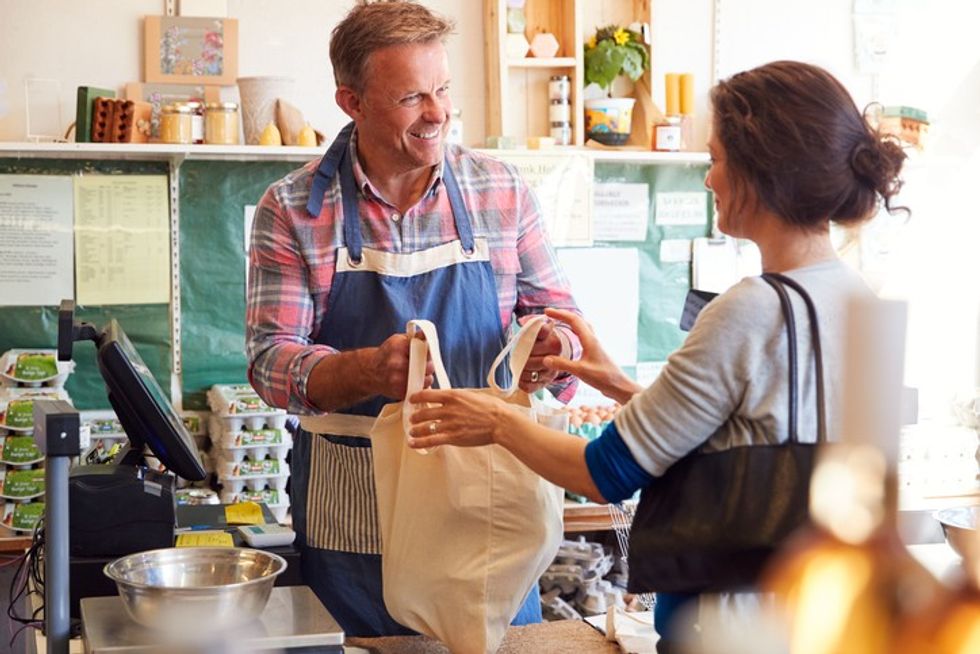
Offering reusable bags by the till can also be a great gateway to sustainability credibility.
In an era of climate crisis, stocking local or UK-produced goods not only cuts down on emissions but resonates deeply with a customer base that’s increasingly looking for authenticity. Feature a section in your store dedicated to eco-friendly or locally sourced products, and make sure to tell the story behind them. Educating customers about the origin and sustainability credentials of their purchases can deepen loyalty and trust in your brand.
One of the most exciting sustainability trends sweeping the retail world is refill stations. In the past, refill stations were mostly associated with eco-centric shops in trendy neighbourhoods. But now, they're moving mainstream. Installing refill stations for common goods like cleaning supplies, dry foods, and even coffee can dramatically cut down on packaging. By offering a discount for customers who bring in their own containers, you not only encourage repeat business, but you also reduce single-use plastics.
Interestingly, while supermarket giants seem to be failing at taming refill retailing (remember Asda scrapping the trial?), independent convenience stores stand a better chance in mastering this skill.
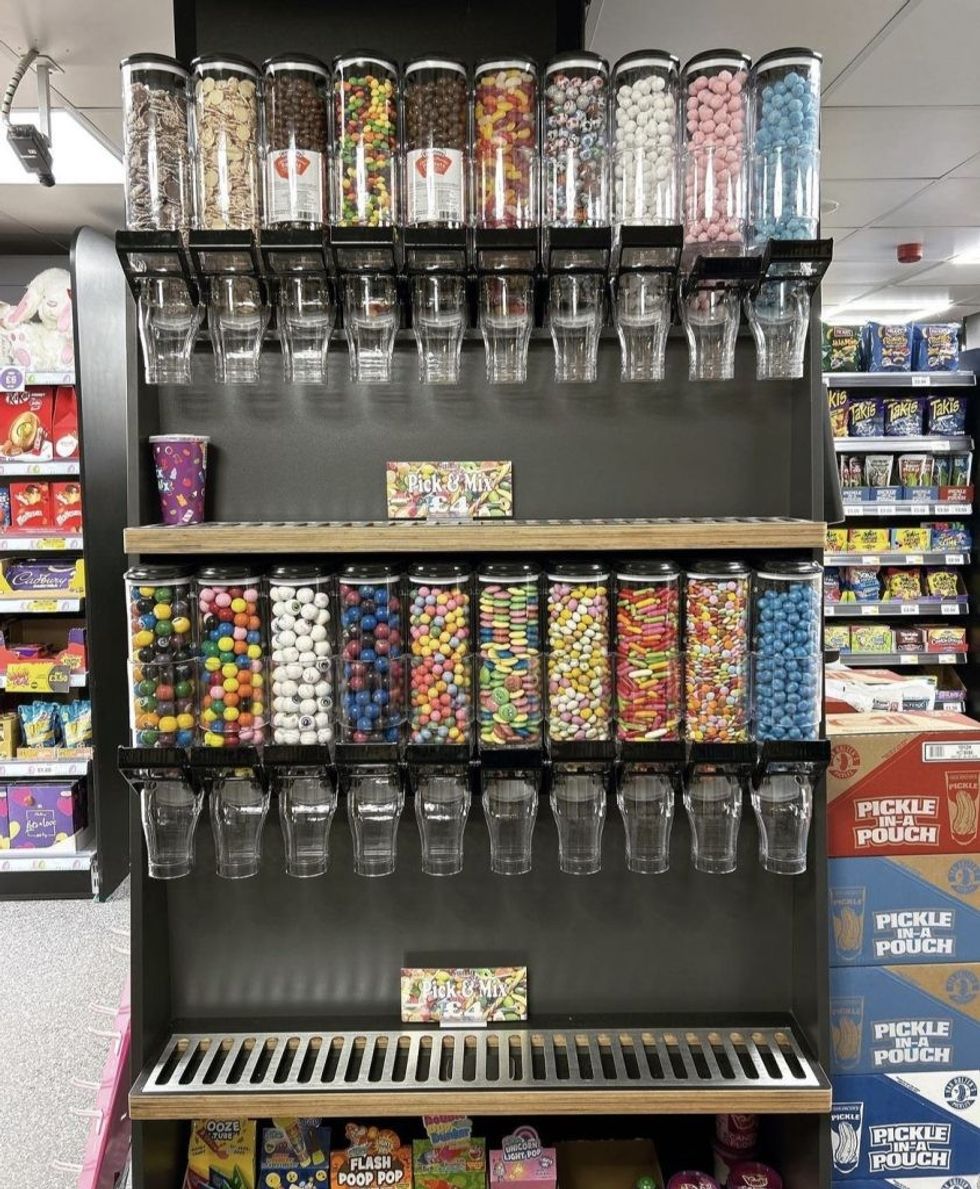
Refill retailing is more complex and less practical for bigger supermarkets where shoppers usually come unprepared (not carrying any bottle or containers for refill) and often pick pre-packaged products to avoid any spillage during the long errand run. However, things are different with local stores.
Some independent stores, like Central Co-op Dodworth Community Store and Costcutter Epsom, are already pioneering refill retailing. Premier Talbot Store in Poole installed refill stations about two years ago, and the customer response has been great. Asian Trader Award winning retailer Ehamparam Karunanithy, who owns the store, told Asian Trader how his shoppers love this concept as refill stations give them flexibility to control the amount they want to buy.
A leading supplier of refill systems for dried foods and liquids is Martek Zero Waste. It has been assisting in increasing numbers of refill stations in local stores. The firm boasts of “one stop shop” approach where store owners can purchase every component required to set up a refill dispenser.
Martek Zero Waste's dispensers can be seen in locations such as Co-op Central England and countless independent stores which have all of their products from sweets and nuts right through to liquids displayed in an “aesthetic and practical manner”.
Another name here to make note of is London-based GoUnpackaged that helps the makers in transition from single-use to reusable packaging. Its venture The Refill Coalition has been a pioneer in installing reusable bulk vessels for key food staples, starting with some select Aldi grocery stores in England.
Targeting the spillage issues, the solution by GoUnpackajed re-imagines in-store refills using a standardised vessel that is filled by the supplier, and returned up the supply chain for hygienic washing and refilling removing all the operational burden from store level.
This is a change that doesn’t just benefit the planet – it also taps into the rising trend of conscious consumerism. Customers love the idea of reducing waste, and offering refills gives them a reason to return regularly.Traditional recycling bins are great, but why stop there? Take it to the next level with recycling incentives. For example, you can set up a drop-off point for difficult-to-recycle items like batteries, electronics, or soft plastics. Partnering with local recycling centres or eco-organisations can help manage these collections.
To sweeten the deal, offer small rewards, such as discounts or store credit, for customers who bring in recyclable items. Not only do you help the environment, but you also increase customer loyalty.
Receipts are tiny but mighty contributors to environmental waste, and most of them end up in the bin. Offering digital receipts via email or app is a small but impactful way to reduce paper usage. Similarly, consider switching to electronic shelf labels that can be updated with a few clicks, eliminating the need for constant reprinting of paper tags.
Food waste is one of the biggest challenges for convenience stores. But instead of binning unsold perishables, why not find ways to cut down on waste? Start by donating unsold food to local charities or food banks and platforms like Too Good To Go.
Most recently, East of England Co-op extended its partnership with Retail Insight, provider of in-store execution software, for a further three years as part of its ongoing commitment to sustainability and tackling food waste.
East of England Co-op has partnered with Retail Insight since 2021, leveraging its cloud-based WasteInsight solution to tackle food waste across its estate, putting retailers in control of food waste through data-led, actionable insights including forecasting accuracy, expiration management, dynamic markdowns and donations to charities.
An important name to consider here in terms of food waste reduction is Gander. Recently, local sharing app Olio has launched a brand new “Deals” section in partnership with reduced-to-clear SaaS platform Gander, to take their fight against food waste to the next level.
Under the partnership, Gander’s SaaS platform shows Olio’s four million UK users where to find cut-price groceries at participating stores in their local area. Users of Olio’s app can browse yellow-sticker deals at Gander’s growing list of partner retail groups, including Channel Islands, Filco Market, Pricewatch Group and Sewell on the Go, displaying branded products from Nisa and Co-op.
App users can add their favourite deals to a watchlist on Olio to keep an eye on availability, and then head into the store to purchase them as normal.
Stacey Wiliams, Business Development Director at Gander, told Asian Trader, “We could not be prouder of the way Gander continues to evolve, not least of all with the pivot from app to SaaS, which uses the latest technology to enable more food to be saved than ever before.”
Given the current challenges of the high cost of living, Olio and Gander expect their collaboration on the “Deals” section to be a valuable addition to the app, helping users shop smarter and save money on their grocery bill.
Go Greener
It’s easy for smaller stores to shrug off the sustainability trend as a “big supermarket problem”, saying that they don’t have the colossal supply chains of Tesco or the budget of M&S to overhaul the operations, right? Wrong.
In fact, convenience stores are in a prime position to make a big impact on sustainability.
They are flexible and tune themselves more easily to consumer trends and preferences but also can play a crucial role in shaping the community mindset. Let’s not forget that customers are increasingly loyal to businesses that align with their values.
It doesn’t matter if you’re selling organic avocados or everyday basics – customers are looking for eco-conscious choices. And some will shop around to find them so make sure you have what they are looking for.
Some changes like installing refill stations might sound like a big project but it is more about taking the first step in the right direction, no matter how tiny it is. Consumers are crying out for solutions to the problem of single-use plastic packaging, and it is time that they should be given solutions.
The future of convenience retail isn’t just about convenience anymore. It’s about being smart, ethical, and yes – sustainable. It’s time for convenience stores to embrace their role in creating a greener future. Convenience stores that embrace their role in building a greener future aren’t just doing the right thing—they’re meeting the growing expectations of planet-conscious shoppers.






